Description
The Words by Jean-Paul Sartre (1980-1905) is a French philosopher, literary critic, poet, and writer. The book “Words” is known as Sartre’s literary masterpiece. This is his autobiography in which he writes about becoming a writer, his creativity, and his relationship to death. Sartre’s literary masterpiece, The Words, is Sartre’s autobiography up to the age of ten, most compared to Rousseau’s confessions.
“Words” is an unconventional form that depicts Sartre’s inner worlds of the child in the two intertwined realms of reading and writing, and describes how this process affects the thoughtful life of the great Sartre of the year. In this work, Sartre expresses his mental behavior in ways that are sometimes easy to abstain, sometimes very difficult, surprising, and at the same time enchanting. This book consists of two chapters;
The first is “reading” and the second is “writing”. “Reading” begins with a humorous and lively tone. In a part of the book “Words” we read: “Around 1850 in Alsace, a teacher who was annoyed by his children gave Reza to sell food.
This person, who was trying to find a way to compensate for this degradation, [said to himself] that now that he has stopped educating the minds, one of his sons will train the breath and someone in his family will become a priest. This person will be Charles. But Charles shrugged off the burden and preferred to follow the equestrian woman who was performing in the circus.
They put his photo on the wall and forbade him to take his name. What was your turn? August hurriedly imitated his father’s self-sacrifice and entered into a trade and disrupted a good position. It was left to Louis, who was not very talented, the father took control of this quiet boy and made him a priest in the blink of an eye. Louis later went so far as to create another priest, Albert Schweizer, whose work we are familiar with.
Charles did not find the rider; But his father’s vigorous movement had an effect on him, as he maintained an interest in excellence throughout his life and devoted his passion to creating important situations with the help of small events.
Charles, as we shall see, did not intend to dodge the burden of family mission, but wished to devote himself to a modified form of spirituality, a sacred profession for which women riders were allowed. Teaching was worthwhile: Charles chose to teach German.
He defended a treatise on Hans Sachs, adopted a direct method of teaching language, which he later thought was his own, and collaborated with M. Simono published a prestigious German book and achieved rapid professional success, moving his work from Macon to Lyon and eventually to Paris. In Paris, on the day of the awards ceremony, he delivered a speech in which he received a separate print honor: “Mr. Minister of Education, ladies, gentlemen, my dear children, it is impossible to guess what I want to talk to you about today! “About music!”
The Book of Words is a work by Jean-Paul Sartre, first published in 1963. This famous autobiography about Sartre’s childhood is widely compared to Jean-Jacques Rousseau’s Confessions. The book of words, written by Sartre at the age of 59, is a masterpiece of “self-analysis.”
In this book, the famous French philosopher, novelist and playwright uses the same honesty and wise insight that is seen in his other works to describe his childhood. Born into a loving and book-loving family and raised by his mother and grandparents, he had a childhood that could be described as a long-term love affair with words and books. In addition to describing the early years of Jean-Paul Sartre, The Book of Words explores and evaluates the general benefits of books and language in human life.

Excerpts from Jean-Paul Sartre’s Word Book:
I will end my life as I started in the books. There were books everywhere in my grandfather’s office; Their dust collection was banned except once a year before the start of educational institutions in October. I still did not know how to read, I respected them, these fixed stones.
Whether they were straight or crooked, stacked like bricks on library shelves, or spaced apart, I felt that our family’s success depended on them. They were all the same, I was playing in a very small temple, surrounded by old memories that witnessed my birth and death, and their continuation guaranteed me a peaceful future.
Not. It is not a place where I feel empty. The subway is full of people, the restaurant is full of people, the heads are full of small things. I slipped out of the world and nothing was lost in the world. I must believe that I was not necessary. I wanted to be necessary. I wanted to be necessary for something or someone. I was not. Let me also say this. I loved you. I say now because it doesn’t matter anymore.
I had two lives, both of which were lies: I was a swindler in public, I was considered the famous grandson of Charles Schweizer; When I was alone, I was drowning in imaginary sorrows. I was correcting my false pride with a false anonymity. I had no problem moving from one role to another. The moment I went to put on my hidden boots, the key in the lock was spinning, my mother’s hands seemed to be paralyzed, they stopped moving on the piano knobs, I put the ruler in the library and I went to put myself in my grandfather’s arms, went to his armchair, brought him his comfortable shoes, and inquired about the day he had spent with the names of his students …
About Jean-Paul Sartre
Jean-Paul Sartre is the pure model of the political intellectual in the twentieth century. He was aware of his influential role in the course of events. When Sartre’s extensive (in some cases extra-legal) efforts to oppose the Algerian war and France’s colonial role in the country threatened to arrest him, General de Gaulle said in response to those calling for Sartre’s arrest: “Someone, Voltaire. “He will not be arrested.” De Gaulle’s comparison of Sartre and Voltaire was right. Because both had philosophical, literary and political concerns.
At Voltaire’s funeral, tens of thousands accompanied Sartre’s coffin to Paris.
Sartre was born on June 21, 1905 in Paris and died on April 15, 1980 at the age of 75 in that city.
The name of Jean-Paul Sartre is reminiscent of the philosophy of existentialism and a leading literary movement. Some, called Sartre, thought of smoky cafes in Paris, where Juliette Greco sang in a black collar dress to passionate French youth (chanson).
But in a short monograph it is difficult to deal with all aspects of the life of an individual whose life was formed in the stormy decades of the twentieth century and who had extensive philosophical, literary, political, social and media activities. In this article, an attempt has been made to review some of the phrases of Sartre’s theoretical and practical activity.
Sartre in Iran
Iranians also became acquainted with Sartre through his literary and political activities. Sartre’s philosophical debates and views have been less criticized and debated among Iranian intellectuals. The number and quality of Sartre’s literary books translated into Persian, in contrast to his philosophical books, clearly show the basis on which the interest of Iranian intellectuals and Sartre’s importance to them was based.
Sartre’s existentialism in Iran has been done mostly through his literary writings and away from serious philosophical debates. Sartre entered Iran after his separation from the French Communist Party.
This led Iranian Marxists to regard Sartre as a “petty-bourgeois intellectual” who should be considered important only in literary and theoretical circles. Sartre’s efforts in socio-political struggles were also viewed as tools.
Iranian intellectuals familiar with European languages were most fascinated by Sartre politically and literary. Sartre was a role model for Iranian intellectuals such as Jalal al-Ahmad and Ali Shariati. Of course, a look at Sartre’s philosophical and moral views shows that Sartre’s influence on Iranian intellectuals was not in the philosophical arena.
The unfamiliarity of Iranian intellectuals with philosophers such as Hegel, Husserl, and Heidegger, all of which are necessary for understanding Sartre’s philosophical views, inevitably forced people like Al-Ahmad and Shariati to have a superficial understanding of Sartre. They wanted to emulate only some of his political activities and to embellish some of his literary expressions in their discussions and writings. Beautiful phrases that, of course, could and can become behavioral role models.
Sartre’s books translated into Persian include Nausea, Flies, Walls, Words, Dirty Squads, Satan and God, The Sugar War in Cuba, The Spinning, The Trojan Women, Existence, and Nothing.
1- Introducing the book on YouTube
2- Introducing the book in Aparat

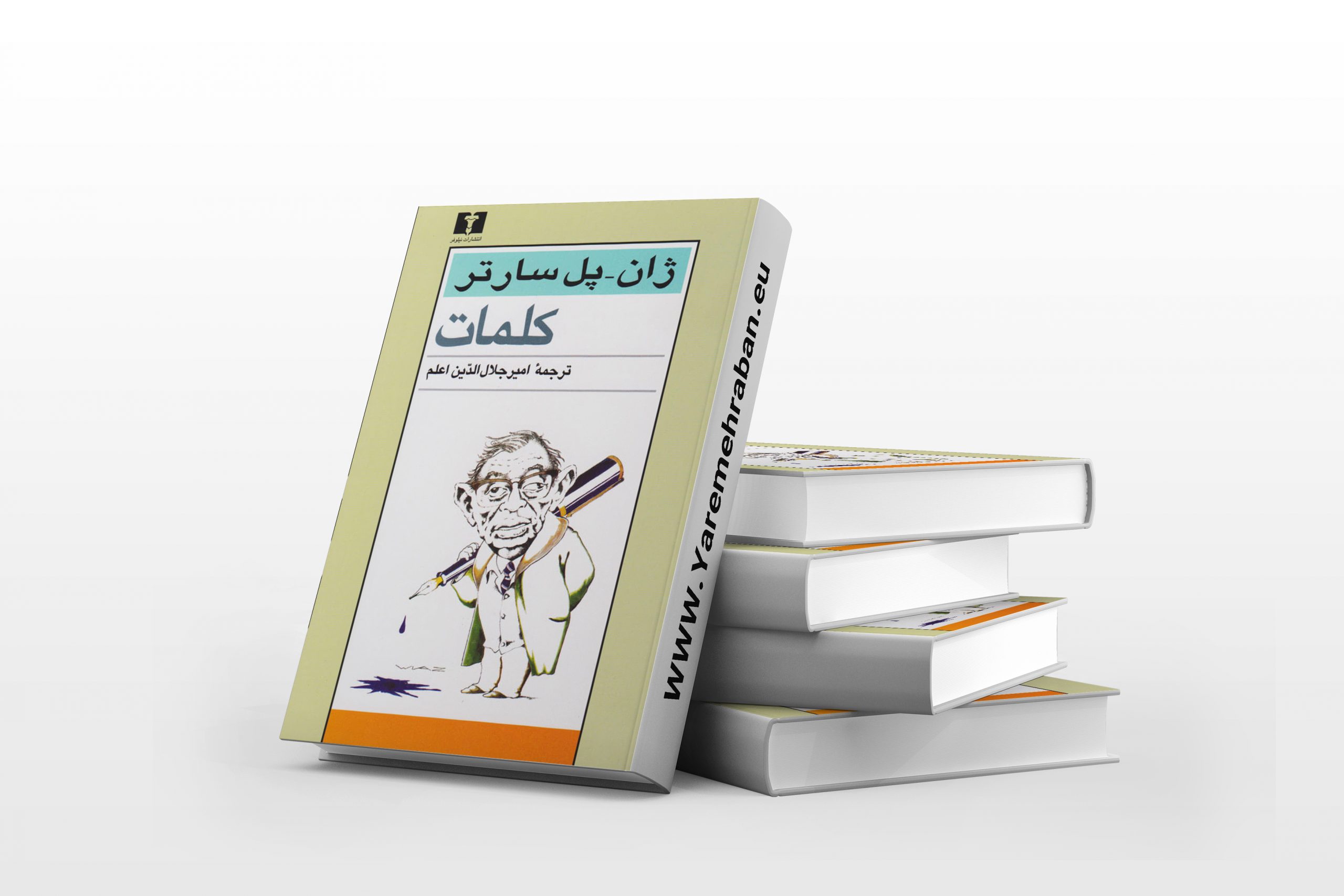


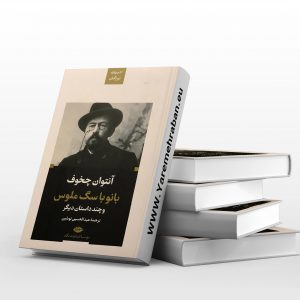
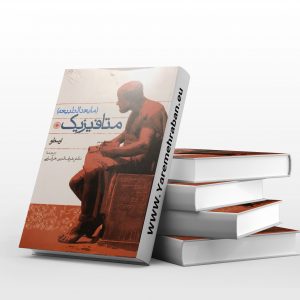



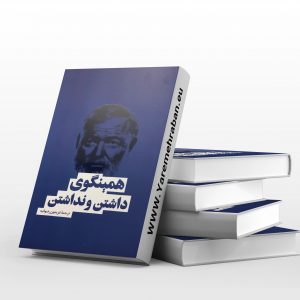
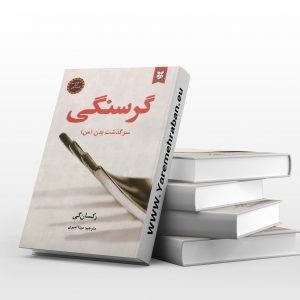

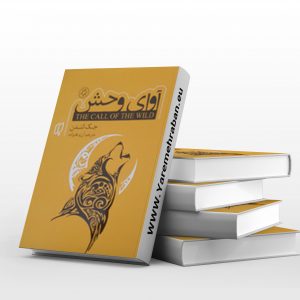
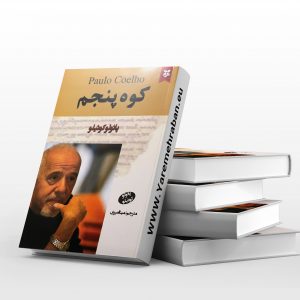
Reviews
There are no reviews yet.